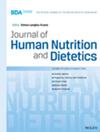Association between dietary vitamin C intake and migraine in adults: A cross-sectional study of the National Health and Nutrition Examination Survey
Abstract
Background
Previous studies indicate that vitamin C may decrease the occurrence and intensity of migraines, but the evidence is restricted due to small sample sizes. This study aimed to determine the magnitude of the association between dietary vitamin C intake and migraine in the general population.
Methods
This cross-sectional study utilised data from the National Health and Nutrition Examination Survey (NHANES) conducted between 1999 and 2004. Participants who had severe headaches or migraines in the past 3 months were classified as experiencing migraines. Dietary vitamin C intake was evaluated using the 24-h dietary recall system. Logistic regression models, restricted cubic spline (RCS) regression and stratified analyses were employed to assess the association between dietary vitamin C intake and migraine.
Results
The study included 4101 participants, of whom 702 (17.12%) experienced migraine. The study revealed an inverse association between dietary vitamin C intake and migraine (odds ratio [OR] = 0.89, 95% confidence intervals [CI] = 0.83–0.96, p = 0.002) after adjusting for demographic covariates, lifestyle covariates, laboratory tests, physical examinations, physical activity, dietary covariates and comorbidities. When vitamin C intake was categorised, the adjusted OR (95% CI) for migraine in Q4 (highest vitamin C intake) was 0.64 (95% CI = 0.49–0.84, p = 0.001) compared to Q1 (lowest vitamin C intake). The RCS regression showed a linear inverse relationship between dietary vitamin C intake and migraine (pnon-linearity = 0.449). The findings remained consistent, and no significant interactions were found among different groups.
Conclusions
Dietary vitamin C intake was inversely associated with migraine, and a linear negative relationship was found between vitamin C intake and migraine.

 求助内容:
求助内容: 应助结果提醒方式:
应助结果提醒方式:


